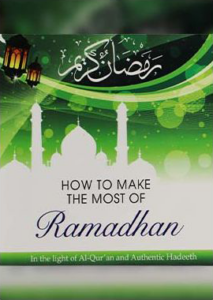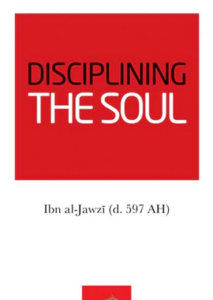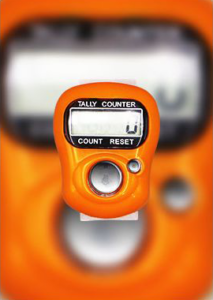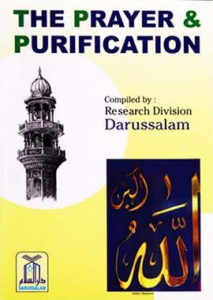In the modern epoch, where time is often felt slipping through the fingers like grains of sand, the ancient wisdom of Islam provides a timeless blueprint for managing our most precious resource. Islam teaches that time is a gift and a test; managing it efficiently is a reflection of a Muslim’s awareness of their responsibilities towards the Divine and the worldly.
This blog by Darussalam will indulge more in the Quran and Sunnah guidance to manage time efficiently while staying close to the religion.
The Essence of Time Management in Islamic Doctrine
Valuing Time as a Trust from Allah
Islamic teachings encourage believers to see time as an amanah (trust) from Allah and to use it wisely in pursuits that are beneficial both in this life and the hereafter.
The Prophetic Model for Time Utilization
Scheduled Worship: The Prophet Muhammad (PBUH) adhered to strict routines for prayer times and religious obligations.
Allocated Rest and Work: He balanced between resting and fulfilling responsibilities, illustrating the importance of a well-rounded approach to time.
The Quranic Injunctions on Time Efficacy
Time as an Oath in the Quran
- The Quran swears by time in Surah Al-Asr, indicating its profound significance.
- Timely Reflections: Periods for self-auditing daily actions are recommended for continuous self-improvement.
Linking Time to Purpose
Life’s Limited Span: The Quran emphasizes that our time on earth is finite, meant for striving towards righteous actions (Quran 67:2).
Sunnah: The Prophetic Approach to a Balanced Life
Divine Commitments and Living Life
Defined Prayer Times: The five daily prayers serve as natural time management checkpoints.
Engagements Beyond Ibadah: Encouraging Muslims to partake in worldly activities, like seeking knowledge, working ethically, and spending time with family.
Islamic Time Management Tools
Using the Adhan as a Reminder
Natural Scheduler: The call to prayer signifies distinct intervals for regulating daily tasks.
The Islamic Calendar’s Wisdom
Hijri Observances: Planning around the lunar calendar for fasts, feasts, and special nights serves as a spiritual organizer.
Strategies for Balancing the Worldly with the Divine
Prioritizing Obligations
Core Religious Duties: Ensuring prayer, fasting, and other obligations are the day’s focal points.
Mundane and Monumental Tasks: Balancing these with one’s religious duties.
The Productivity of Early Hours
Barakah in the Early Morning: Islam places a special emphasis on the blessing found in the early morning hours, encouraging a productive start to the day.
Planning with Purpose: The Role of Niyyah (Intention)
Setting Intentions as Planning
Clarity of Purpose: Begin each day and each task with a clear intention aligned with Islamic teachings.
Sincerity in Action: The Niyyah behind an action dictates its worth and outcome.
Productive Resting: An Islamic Concept
Mindful Leisure
Quality Over Quantity: Islam advocates for rest and leisure activities that revitalize the body and mind without leading to excess.
Engagement with Community: Spend free time in ways that strengthen social and familial bonds, a practice encouraged by the Prophet Muhammad (PBUH).
Effective Time Wasters to Avoid
Pitfalls of Procrastination
Acting on Beneficial Pursuits: Islam teaches to take advantage of five before five, including one’s free time before one becomes preoccupied.
The Illusion of ‘Free Time’
Every Moment Counts: Islam instructs that every moment is an opportunity for productivity, whether through rest, worship, or work.
The Role of Du’a in Time Management
Seeking Divine Assistance
Supplications for Blessings: Muslims are encouraged to ask Allah for barakah in their time.
Spiritual Support: Du’a serves as emotional reinforcement to undertake our daily tasks with vigor and purpose.
Explore Darussalam Books on Prayer and Supplications
Conclusion: Embracing Islamic Time Management for a Fulfilled Life
Balancing the divine with the worldly is not a mere act of juggling responsibilities but weaving a coherent pattern of life where every moment holds a purpose consistent with Islamic teachings. Time management in Islam is more than a strategy—it encapsulates a lifestyle that honors the sacredness of time and utilizes it as a pathway toward success in both worlds.
FAQs on Time Management in Islam
How does Islam view time management?
Islam views time management as a crucial aspect of a Muslim’s life, encouraging the use of time in ways that fulfill both the individual’s worldly and religious responsibilities.
How can Muslims ensure they prioritize their religious obligations while managing worldly tasks?
Muslims can use the practice of the five daily prayers as natural intervals for task scheduling, ensure core religious duties are met, and make Niyyah to align each task with Islamic values.
What are some practical tips for time management following Islamic principles?
Some practical tips include waking early for blessings in productivity, setting intentions before each task, allocating time for rest and family, and avoiding time-wasting activities.
Can making Du’a help with time management?
Yes, making Du’a asking for Allah’s blessing in one’s time can enhance productivity and serve as a reminder to use time wisely.
What role does the concept of ‘Barakah’ play in time management in Islam?
Barakah refers to a blessed increase from Allah, and in the context of time, it means accomplishing more within a set period. Aligning actions with Islamic principles and establishing a sincere intention can invite Barakah into one’s time.
















